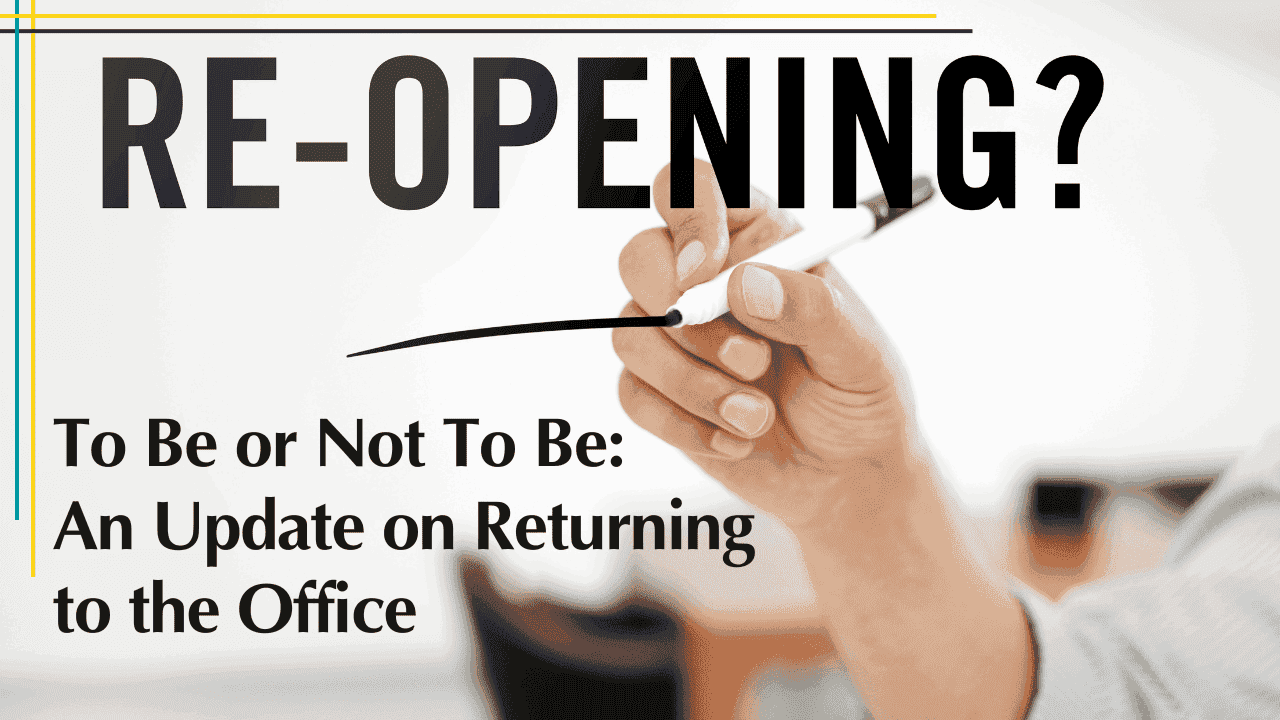The COVID-19 pandemic has been in place since March of 2020, almost three years. The majority of clinical social workers, and other mental health clinicians, have been providing mental health services virtually during this time. The initial switch from seeing patients in-person to seeing them virtually was a difficult one for many clinicians, even one that violated the way that some Codes of Ethics say that psychotherapy should be practiced.
The question of whether psychotherapy should be conducted through videoconferencing or audio-only platforms has shifted to whether it is safe to return to the office to provide the ever-increasing need for mental health treatment (from 20% to 50% of the country). About 30-40% of clinicians have decided to maintain their practices virtually and have given up their offices. For clinicians who have been debating whether they want to return to the office and/or are anxious to do so, there are several factors to consider, as follows:
- Vaccines – there are now two primary vaccines and three boosters to address the variants of COVID that have emerged. One option to protect yourself and your patients is to require that your patients are vaccinated to the level you believe provides adequate protection. Some clinicians require the card that verifies patients have gotten all the necessary vaccines and boosters, some accept verbal confirmation. There is wide variation as to how high vaccination is across the country and even when a patient has been fully vaccinated, there is a possibility that they may become infected. Nonetheless, determining whether a patient is vaccinated is an option for returning to the office. If the clinician has not been vaccinated, this information should be disclosed to patients before they are seen in-person.
- Necessary Conditions for Office Safety – it is still recommended that offices have a HEPA filter, hand sanitizer, chairs at least 6-8 feet apart, daily sanitizing of high-touch areas and restrooms, and making sure that the clinicians and patients do not have any COVID symptoms before coming to the office. A home test is recommended for anyone with a fever or other symptoms before being seen in-person.
- Confidentiality, Informed Consent, Communication Policy – make sure that patients are aware their information may be shared with others if they are found to have COVID. An updated signed Informed Consent and Communications Policy is recommended before seeing patients in the office to explain what restrictions may be placed on seeing patients in the office. Templates may be found at the Clinical Social Work Association website under Clinical Practice.)
- Regulations – one of the advantages of seeing patients virtually is that it is possible to see patients in other states and even other countries. At the beginning of the pandemic, there were many states that allowed clinicians to work in a given state without being licensed in that state. Most states have gone back to the licensure requirements that were originally in place, meaning a clinician must become licensed in the state of the patient to work with the patient. The state Board of the clinician’s discipline should be consulted before working with a patient who is not in the state of the clinician. HIPAA continues to allow platforms that are not officially HIPAA compliant to be used until the Public Health Emergency (PHE) ends.
- Finances – most insurers have covered videoconferencing since the PHE was declared. This practice is likely to continue as long as the PHE is in place. It is important for clinicians to remember that this insurance coverage may be stopped if there is no action in Congress to make it part of the law. There may also be different pay schedules for in-person and virtual mental health treatment. The longer the PHE goes on, the harder it is to remember that the way we have practiced during the PHE is an adjustment that may not be continued when the PHE ends. This makes returning the office a safer prospect in terms of maintaining the income that has been available for virtual treatment during the PHE.
In summary, there are many areas to consider when making the decision to return to seeing patients in-person. Maintaining safety for all should be a primary goal as well as making sure that our practices are functioning in a way that is financially and ethically sound.
**********
We welcome guest columnist Laura Groshing, LICSW. Laura presented a course for TCI on the topic of whether or not to return to in-office sessions. You can enroll in To Be or Not to Be: Clinicians Returning to Office as an online self-study and earn 1.5 Ethics CE credits.
About Laura Groshong:
Laura Groshong, LICSW, has been in clinical practice for the past 43 years. She was also a Registered Lobbyist in Washington for five mental health organizations for 25 years. She has been the Director of Policy and Practice for the Clinical Social Work Association nationally since 2006 and, through the Mental Health Liaison Group, worked on passage of the Mental Health Parity and Addiction Equality Act of 2008, the Affordable Care Act, and many other pieces of legislation that support and benefit LCSWs. Laura, a dynamic and engaging speaker, has written and lectured extensively on clinical and legislative issues around the country.




The course was so informative and I was glued to my screen for the entire duration. I received so much knowledge concerning ethics in telehealth and I am greatly encouraged to read about all the standards and policies that pertain to my practice. Thank you!.